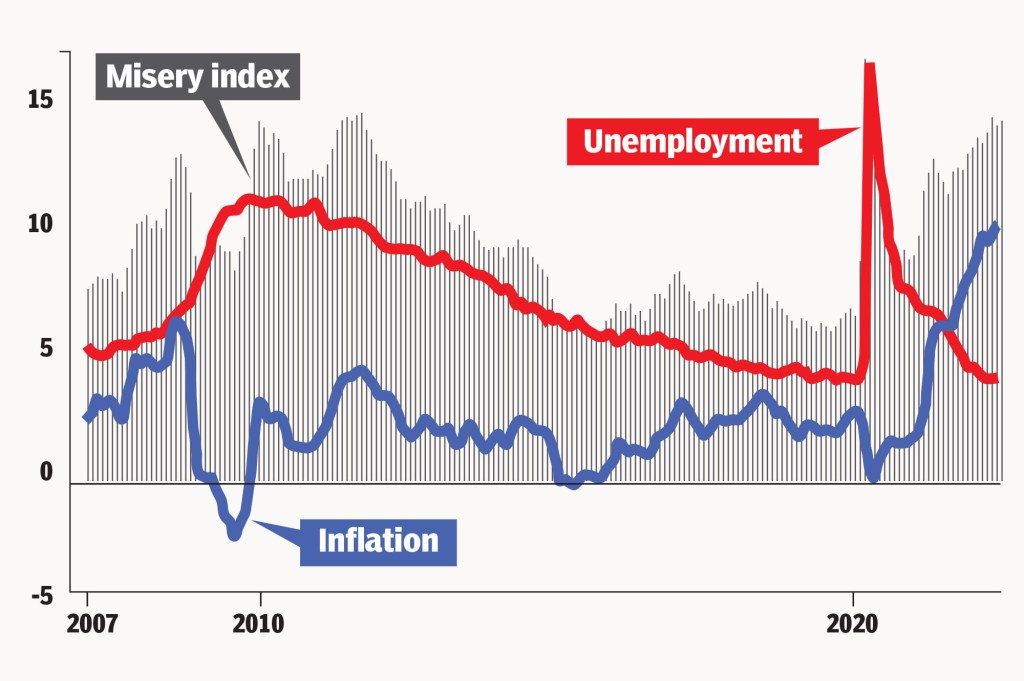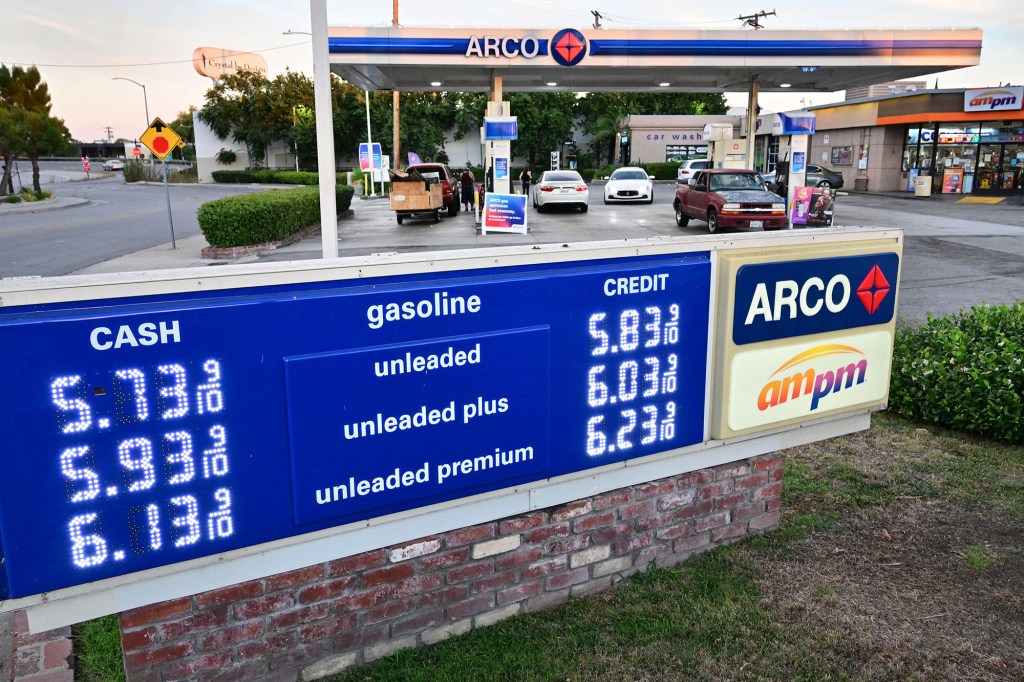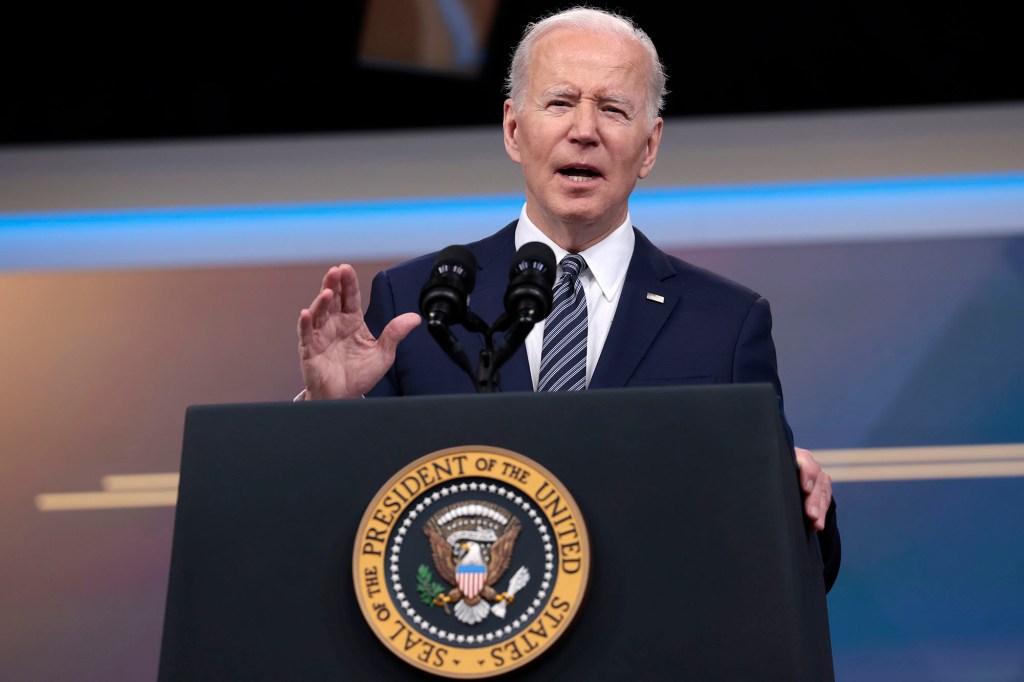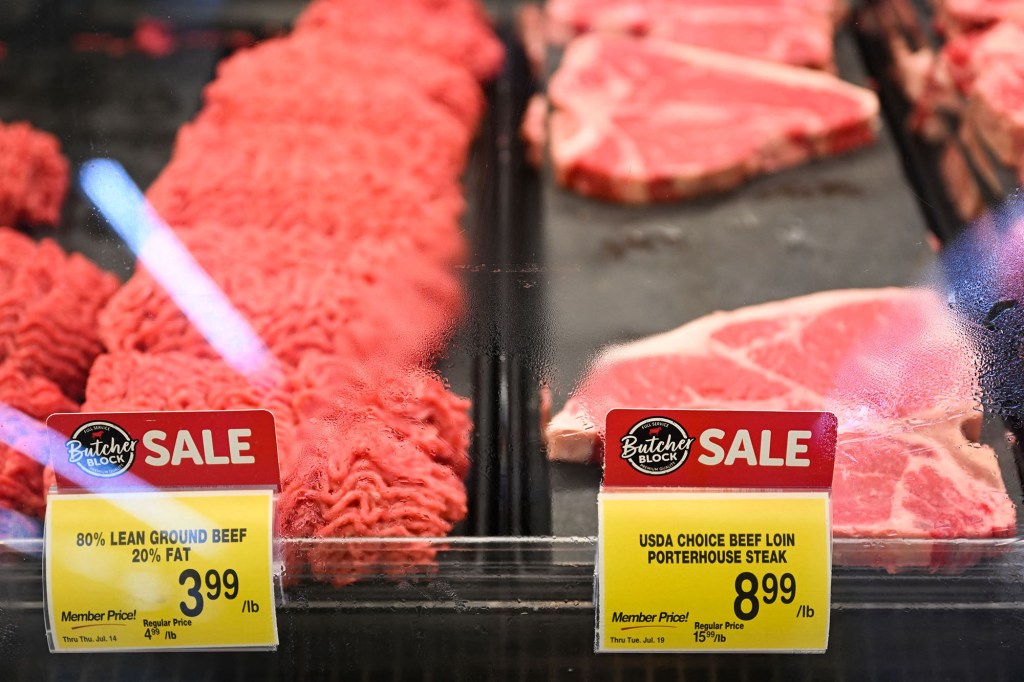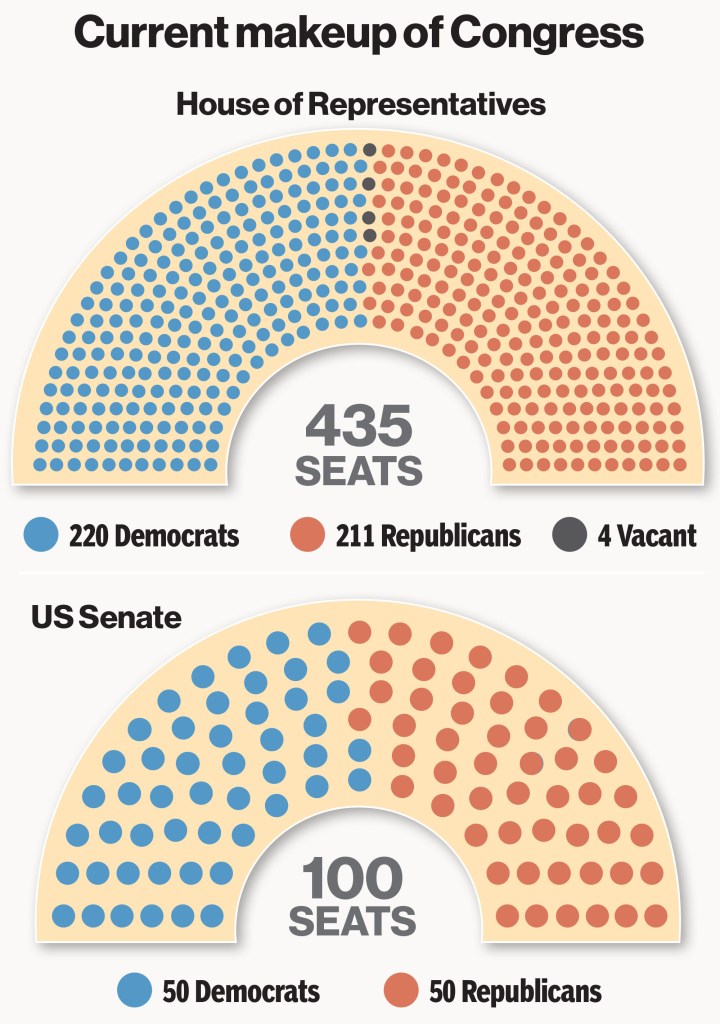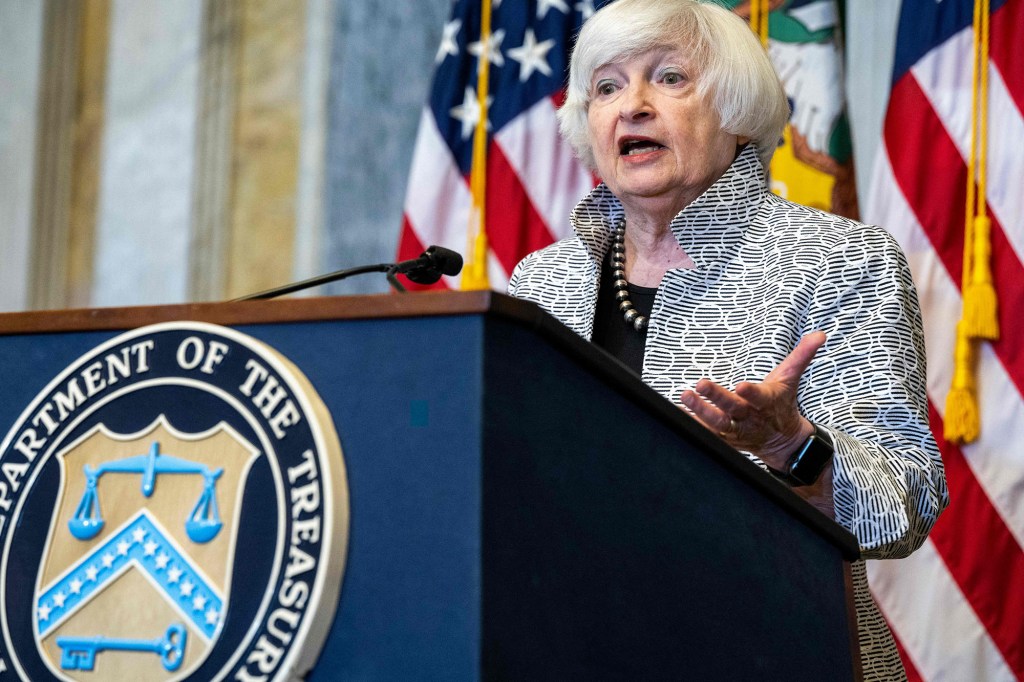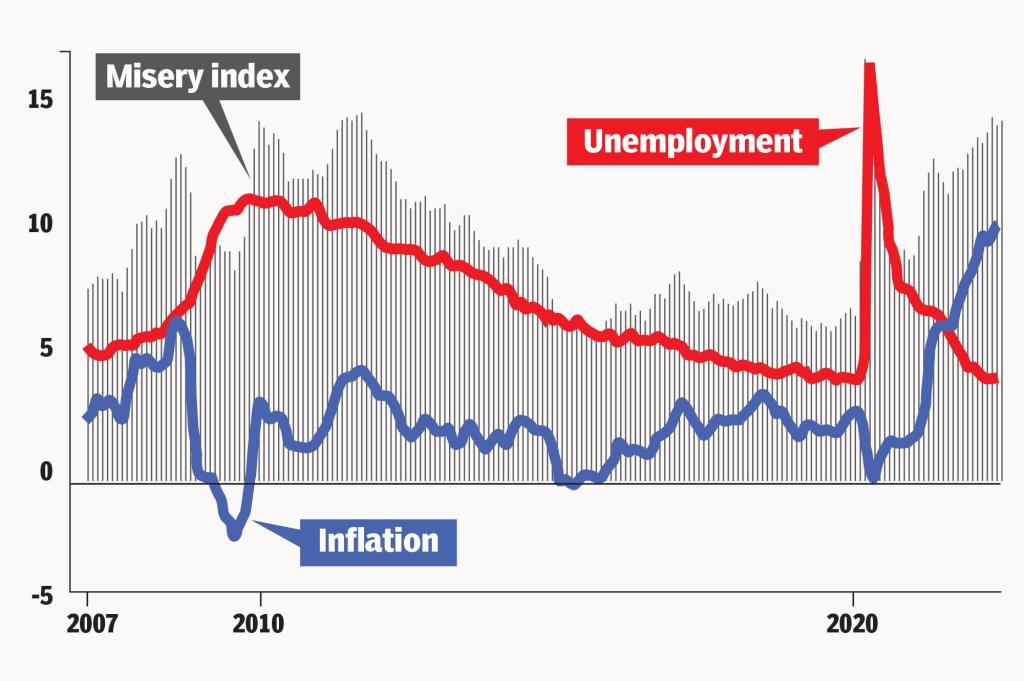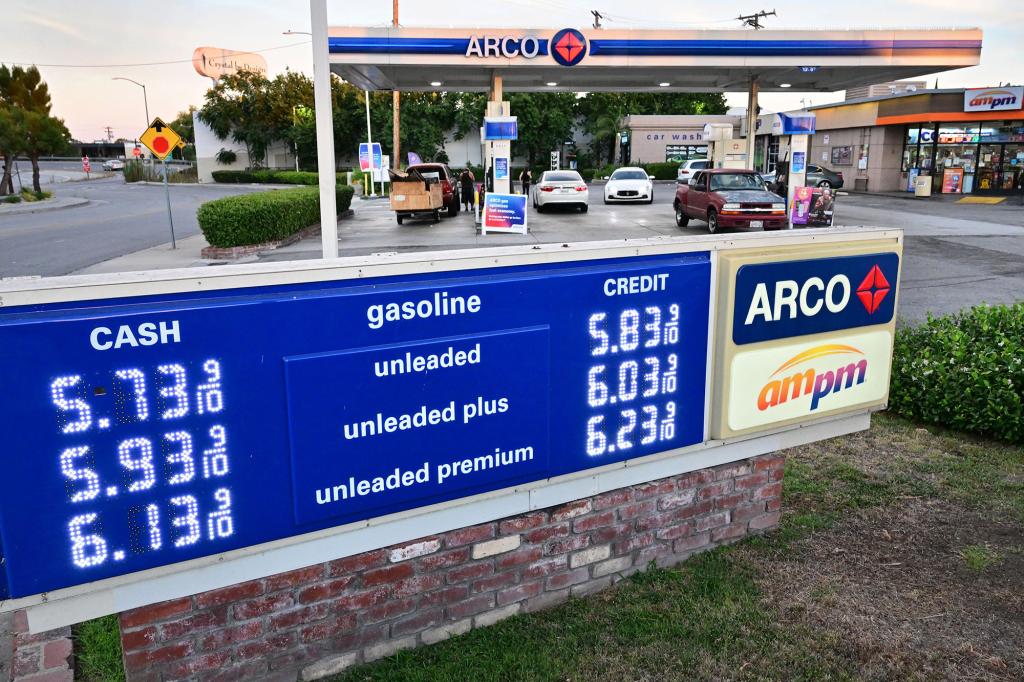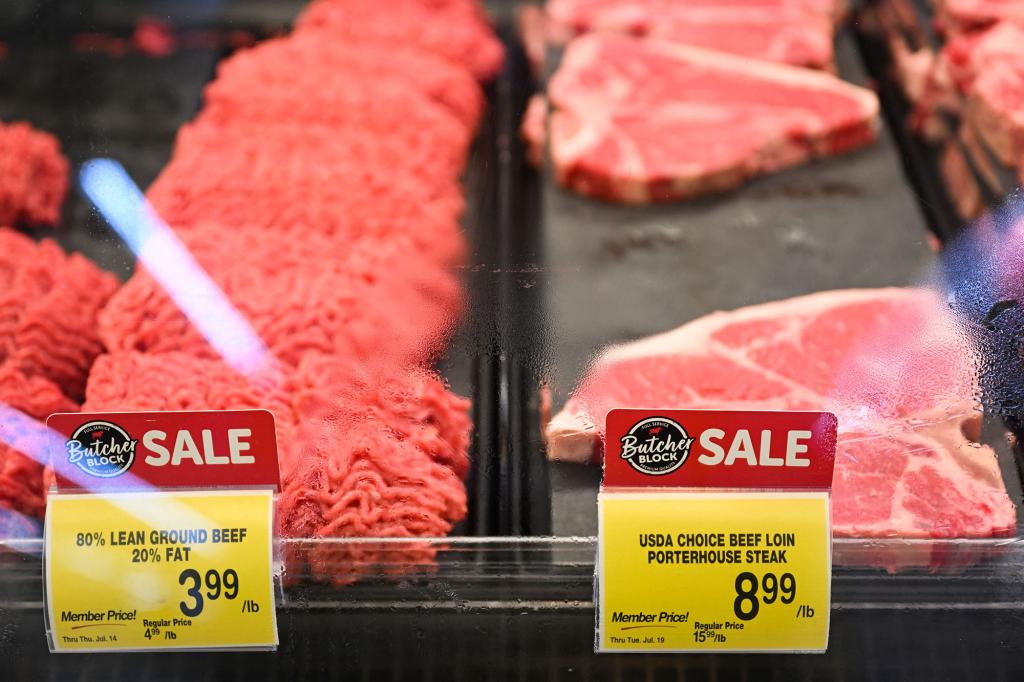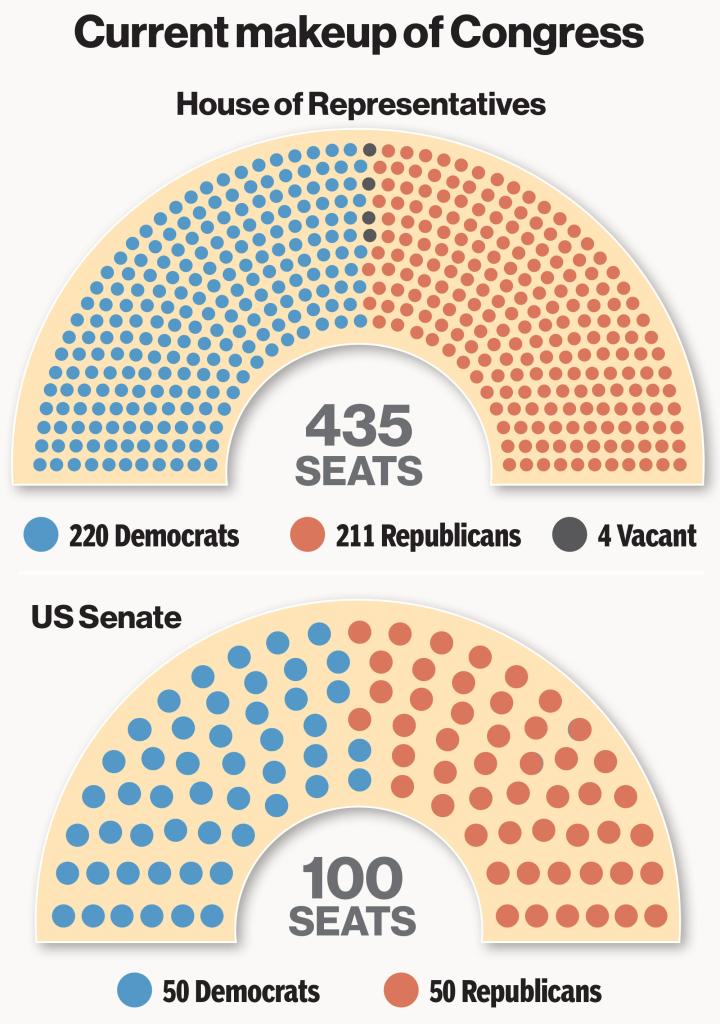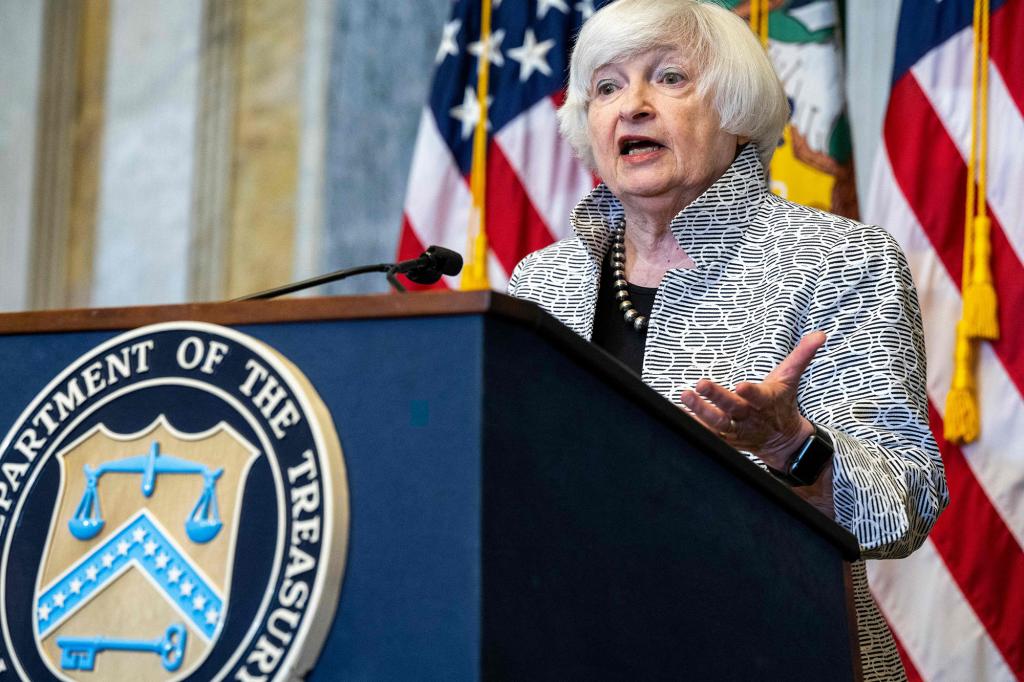‘Misery index’ shows Democrats face midterm rout as voters rage at Biden
Voter rage at President Biden over the state of the economy is likely to result in another epic “shellacking” for Democrats in November’s midterm elections — which could cost them 40-plus seats in Congress and control of both chambers, according to a new study.
The “misery index” of inflation and unemployment reached 12.7% in June and is projected by Bloomberg Economics to be at 12% in October.
That reading would rival the level that followed the Great Recession of 2008, according to Bloomberg, which said the index functions as a key predictor of electoral outcomes.
In the 2010 midterms, Democrats lost 63 seats in the House and six in the Senate.
The voter backlash led then-President Barack Obama to admit the “humbling” results amounted to a “shellacking,” later adding: “It feels bad.”
The November elections are shaping up against the backdrop of increasing disapproval for Biden’s job performance, with 59 percent giving him a thumb’s down last week and setting a record low rating for any modern president.
Historic patterns suggest Republicans can expect to win 30 to 40 seats in the House and a few in the Senate, according to Bloomberg.
Democrats now hold a razor-thin, 220-211 majority in the House, where there are four vacancies.
The margin is even narrower in the Senate, which is evenly split, 50-50, with Vice President Kamala Harris having cast 23 tie-breaking votes.
After inflation hit a 40-year record high of 9.1% in June, only one state — New Hampshire — had a misery index below 10%, Bloomberg said.
“The reason why the misery index still matters is that it’s really genuine misery for so many Americans,” Republican pollster Frank Luntz told Bloomberg.
“Food and fuel inflation is so high and so universal, and impacts every voter in every community in every state.”
Luntz added: “When everyone is affected, the electoral impact is compounded.”
In the crucial swing state of Nevada — where there’s a toss-up election for a Democrat-held Senate seat and several tight House races — Sierra Farley, a single mother of two kids, said she’ll have to move out of her home in Summerlin, outside Las Vegas, because the rent is going up $450 a month in September.
“I just got a raise and I still can’t afford my rent,” Farley, 31, told Bloomberg.
Bloomberg’s report followed the Federal Reserve’s decision last week to raise its benchmark interest rate by 0.75%, marking the second of its biggest back-to-back hikes since the early 1980s as the Biden administration tries to lower prices by increasing the cost of borrowing.
Meanwhile, the nation’s gross domestic product declined for a second straight quarter, officially signaling a recession, prompting Treasury Secretary Janet Yellen to claim that it’s “not what we’re seeing right now when you look at the economy.”
“Job creation is continuing; household finances remain strong. Consumers are spending and businesses are growing,” she said Thursday.
Rep. Gwen Moore (D-Wis.) said Democrats needed to stop arguing about whether the US economy was in recession and instead acknowledge Americans’ economic pain.
“People are experiencing this. This is not abstraction for those folks,” she told Bloomberg.
“When they pull up to the gas pump, the grocery store, they’re experiencing their own personal depression or recession, no matter what the numbers are.”







